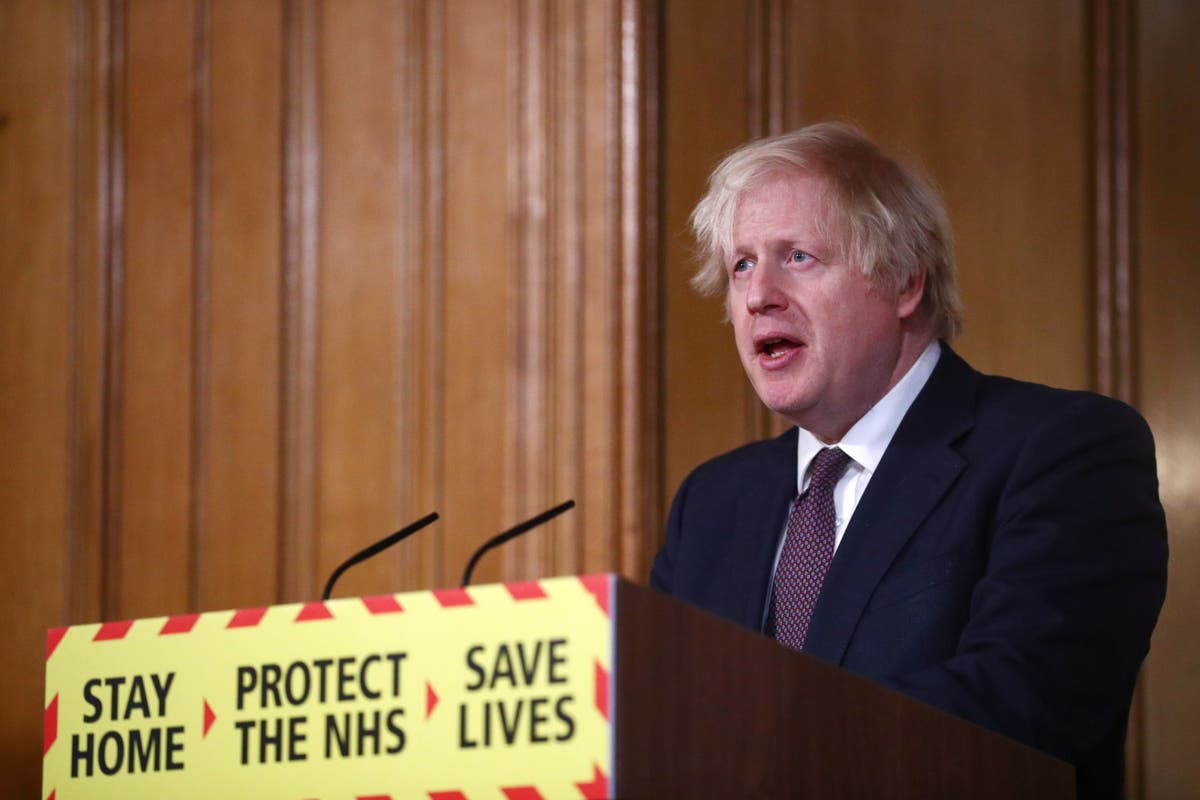Boris Johnson’s government repeatedly made the same mistake of “watching and waiting” before taking action in the face of soaring infections during the pandemic, the UK’s chief scientific adviser has told the Covid inquiry.
Lamenting that the 10-day lag between infections and hospital admissions “made watch and wait tactics very damaging” when deciding whether to impose lockdowns and other restrictions, Professor Dame Angela McLean said: “I think we made the same mistake three times.”
Dame Angela criticised a “lack of appreciation that very quick decisions were needed” and said she believed this was the “most significant shortcoming” in decision-making during the pandemic.
She told the inquiry: “If you wait until the thing you’re worried about is really, really bad and growth is exponential and fast, you can very easily end up with things twice as bad at the hospital door, even if you put in a brilliant intervention.”
Delivering a further blow to ministers who led the pandemic response, the top scientist – revealed last month to have labelled Rishi Sunak “Dr Death the chancellor” – told the inquiry that understanding these concepts did not require a scientific mindset.
With “the benefit of hindsight”, the first national lockdown on 23 March 2020 “should have been two weeks earlier”, which “would have made a really huge difference”, Dame Angela said.
But while sufficient data was not available at that point, Dame Angela believes that by 16 March that was no longer the case – and ministers should have locked down immediately on that date, having been told they needed to reduce social contacts by around 75 per cent.
“On the 16th – given what we knew about how fast this epidemic was spreading, given what we knew and could surmise about the fact that probably everybody was susceptible to catch it – I think there was enough information on that date to say we need to stop all non-essential contact,” she said.
Ministers ‘did not have a clear sense of how many people were going to die’ at the outset of the pandemic
(Getty)
But Dame Angela said the government failed to learn from its “mistakes” in March by acting decisively – despite scientists warning of an autumn wave from the outset of the pandemic.
The scientist said she did not remember Mr Johnson “saying anything” in response to advice on 20 September that a “circuit breaker” lockdown was necessary.
In spite of the same advice being given again the following day and at a Sage meeting two days later on 24 September, Mr Johnson did not impose the second lockdown until 5 November. “The number of infections kept rising through September and October with attendant hospitalisations and, sadly, deaths,” she said.
Asked how she felt at the time, Dame Angela replied: “Very worried because having lived through the first wave with its horrible consequences, I couldn’t understand why we weren’t doing things to try hard to avoid a second autumn wave.”
She added: “It felt like March all over again. We wait till the last possible moment – we delay and delay a decision, and then we have to slam the brakes on as hard as possible, with the attendant social costs and economic costs.”
Dame Angela said the initial lack of data was ‘horrifying’
(AP)
Dame Angela also said she raised concerns with No 10 directly that ministers “did not have a clear sense of how many people were going to die” in the early stages of the pandemic – she said the deadly outbreaks that tore through care homes were foreseeable from the outset, given the trajectory of past epidemics.
Meanwhile, an email from 28 March 2020 saw her tell a colleague that the lack of data was “the elephant in the room”, writing: “You are going to be horrified when you find out what the data flows coming out of the NHS are like.”
“There was real trouble with doing the sorts of analysis that we needed because the data weren’t available,” she told the inquiry, adding: “It’s that straightforward. It did get much better later.”
While it would have been “useful” for the NHS to say how many hospital patients they could manage at any one time with Covid, she added: “I don’t think we ever had from central government: ‘We want R slightly less than one and the number of new infections per day less than, let’s say, some thousands of numbers’.”
“I think it’s very clear that that was a choice not to articulate a number on what was tolerable,” Dame Angela added.
Dame Angela, who was chief scientific adviser to the Ministry of Defence at the time, criticised a failure to grasp how long the pandemic would last – recalling a so-called “midway review” meeting held in April 2020 in which her comments that it would last 18 months were “met with disbelief”.
Professor Dame Angela McLean gave evidence to the Covid-19 Inquiry on Thursday
(UK Covid-19 Inquiry/PA)
Last month, WhatsApp messages and emails disclosed to the inquiry revealed Dame Angela had privately branded Mr Sunak “Dr Death the chancellor”, and described lockdown sceptic University of Oxford professor Carl Heneghan as a “f***wit”.
Dame Angela echoed other top government scientists this week in contradicting Mr Johnson’s claims they had been consulted on Mr Sunak’s Eat Out to Help Out scheme, telling the inquiry: “We would have said, ‘Could you not find some other way to stimulate the economy?’”
Matt Hancock, Dominic Raab and Michael Gove will be among those giving evidence to the inquiry next week. Mayor of London Sadiq Khan and Greater Manchester mayor Andy Burnham will also appear, alongside former health secretary Sajid Javid.

William Turner is a seasoned U.K. correspondent with a deep understanding of domestic affairs. With a passion for British politics and culture, he provides insightful analysis and comprehensive coverage of events within the United Kingdom.








